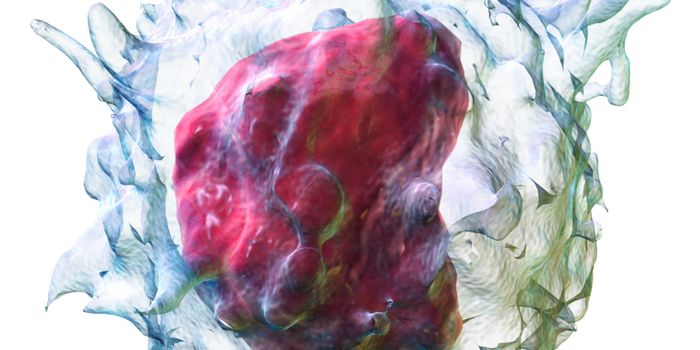Pancreatic Tumor Growth and Metastasis Inhibited
Pancreatic ductal adenocarcinoma (PDAC), a highly aggressive type of pancreatic cancer, has a very poor prognosis due, at least in part, to poor therapeutic responsiveness. Less than 10% of PDAC patients survive five years past diagnosis. An intense chemotherapy regimen consisting of oxaliplatin, irinotecan, fluorouracil, and leucovorin (known as FOLFIRINOX) can lead to tumor regression in about 30% of patients 30% of patients. Still, among those who respond, 90% will experience a recurrence or metastasis and succumb to the disease in a short time. The low infiltration of cytotoxic T cells, the subset of immune cells responsible for killing cancer cells, into PDAC tumors renders immunotherapeutic approaches mostly ineffective. (For more information on the importance of T cells for immunotherapy response, see our previous Labroots article.)
The poor prognosis and dismal response to treatment associated with PDAC make it an important disease to study in an effort to develop new, more efficacious therapies. Elevated expression of an enzyme known as hematopoietic cell kinase (HCK) occurs in many cancers, and high expression of HCK correlates to reduced survival times in PDAC patients.
A study recently published in Cell Reports sought to determine whether the excess HCK in PDAC patients could play a role in tumor growth and metastasis. The researchers utilized novel PDAC mouse models to examine the potential interplay between HCK and cancer progression. The studies utilized two diverse strains of mice: wild-type (WT) mice with intact and functional HCK and knockout (KO) mice genetically depleted of HCK.
KO mice demonstrated significantly smaller PDAC tumors than their WT counterparts. Further, researchers found notably fewer cancer cells when examining metastasis to the liver, the most common site of metastatic spread in PDAC patients. The study also showed that cytotoxic T cell infiltration into PDAC tumors of KO mice increased significantly over that seen in WT mice.
Next, the researchers investigated how KO mice responded to chemotherapy and immunotherapy treatments. KO mice responded better than WT mice when treated with immunotherapies targeting CTLA-4, PD-1, and CD40. The efficacy of chemotherapy also increased when used in KO mice.
The studies suggest that HCK could serve as a beneficial therapeutic target to exploit in developing PDAC drugs. Increasing the efficacy of current therapies through the development of combination approaches could significantly benefit survivorship.
Sources: Nat Revs Gastroenterol Hepatol, NEJM, Cancer Immunol Res, Int J Mol Sci, Cell Reports, BMC Cancer









